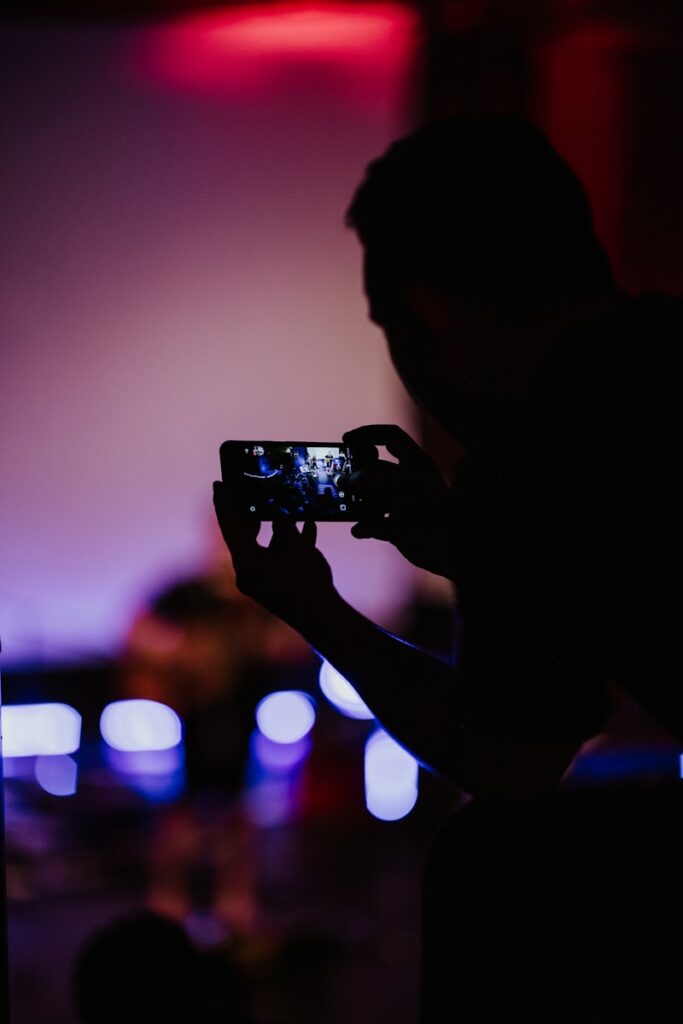Explore More
Biohacking for Burnt-Out Entrepreneurs: What Works, What’s Hype
Social media connected the world—and in doing so, it scrambled our sense of what’s real. Somewhere between the dopamine hits and the endless scroll, entrepreneurs stopped being creators and started becoming consumers. Biohacking, making better lifestyle choices comes down to asking what works and what’s hype while burnt-out

You don’t need another podcast telling you to wake up at 4 a.m., take a cold shower, meditate in a Himalayan salt cave and track your every blink with an $800 wearable. For men running on fumes, especially those building businesses or managing relentless careers, biohacking has become an escape route from burnout disguised as optimization.
But here’s the hard truth: most of it doesn’t work the way you think it does. And some of it works, just not for the reasons you’ve been sold. This isn’t a crusade against Instagram influencers’ agenda. It’s a reality check. If you’re going to invest time, money and energy trying to feel like yourself again—maybe even better than yourself—you deserve something that’s real.
The Rise of Burnt-Out Entrepreneurs and Biohacking

Burnout is becoming the price for success and is no longer a badge of honor; it’s a crisis.
Men are finally waking up to the fact that grind culture was never sustainable.
Biohacking is a mix of common sense, science, performance and self-control. It delivers more focus, better sleep, sharper memory, a younger brain, a stronger body.
For entrepreneurs, it’s appealing because it offers control—control over biology, over fatigue, over time itself. It feels like doing something productive about the chaos inside. And that’s where it starts to get dangerous.
The Hype Machine: How Social Media Hijacked Your Confidence and Identity
Social media didn’t just connect us—it rewired us. It took the raw hunger for connection and repackaged it into algorithms that reward attention over truth, performance over presence. What began as a tool for community quietly morphed into a machine of influence, shaping not only our politics and economies, but our personal health and sense of self.

Entrepreneurs are especially vulnerable. The constant feed of highlight reels and viral hacks creates a distorted mirror—one where your morning routine, your physique, your productivity, and even your calm must now be optimized, aesthetic, and shared. You’re not just building a business anymore, you’re expected to be the brand. The thought leader. The case study. It’s easy to fall into the trap. You scroll past the shredded tech founder in an ice bath at 4 a.m., or the digital nomad CEO posting from Bali and you start to wonder: Am I doing enough? Am I falling behind ?
The tech that powers social media is designed to shape behavior. The same levers used to sell shoes or swing elections are being pulled on your brain—steering your decisions about what to eat, how to train, what to buy, and how to recover. Social ratings, follower counts, and influencer endorsements carry the illusion of authority, even when the advice is scientifically empty or dangerously misleading.
The neuroscience is clear: these platforms hijack the brain’s reward system. Dopamine spikes from likes and shares reinforce behavior, while curated content narrows your worldview and feeds comparison fatigue. For entrepreneurs, this can quietly destroy self-trust. You stop listening to your body and start performing wellness for an invisible audience.
Meanwhile, the real consequences pile up—decision fatigue, sleep disruption, inflated expectations, and chronic anxiety masked as motivation. It’s not just a mental game. It’s physiological. The stress hormone cortisol doesn’t care if your anxiety came from your inbox or your Instagram feed—it just floods your system, suppressing immunity, damaging memory, and wrecking your focus. And yet we rarely question the influencers selling the dream who often look more burnt out than the people buying them.
What Actually Works—And Why
Let’s cut through the noise. The most effective “biohacks” are embarrassingly unsexy. Sleep, movement, food, connection, and stillness. These aren’t revolutionary. But they are foundational—and they’re backed by decades of hard science, not influencer testimonials.
Sleep, for example, isn’t just about rest. It’s about brain detoxification, memory consolidation, hormone regulation, and immune resilience. Short-changing it to squeeze in more productivity is like cutting your brakes to make your car lighter.
Movement—especially zone 2 cardio and strength training—does more for your cognition and stress regulation than any microdose of psilocybin. It recalibrates your nervous system, stabilizes your mood, and helps rewire your baseline state of arousal.
Nutrition. You can’t out-supplement a diet that’s wrecking your microbiome and spiking your insulin every few hours. Your brain is an organ, not an algorithm—it needs healthy food, not magic pills.
The Missing Piece: Why You Still Don’t Feel Right
Even with the best tools, a lot of men still feel off. Wired but tired. Foggy. Unfulfilled. That’s because chasing success, at its core, is often a distraction from what matters to you.
You’re not tired because your red light panel is underpowered. You’re tired because you’re emotionally disconnected. Your nervous system is stuck in survival mode. You haven’t felt safe, seen, connected in a long time. Until you deal with that, until you’re willing to stop outsourcing your well-being to gear and gadgets, no protocol will fix what your life keeps breaking.
Here’s the real hack: treat your body like an ecosystem, not a machine. It’s not something to be optimized for maximum output. It’s a living, adapting, responsive field of intelligence. And if you listen, it’ll tell you what it needs.
Go for a run or do absolutely nothing for once and realize you’re still worthy even when you’re not achieving something. Biohacking can be powerful—if it’s used as a tool, not a crutch. But no hack will ever substitute for a reset button, rest, and learning how to live in your own skin again. That’s not a shortcut. That’s the way back.
You’re like a hundred-Euro note— a little worn around the edges now, creased from being passed through too many hands, folded too many times during too many late nights. But none of that changes your value. You don’t lose worth because you’re not crisp and new. If anything, the wear is proof: you’ve been in the world, you’ve been needed, you’ve been trusted. You’re still worth exactly what you always were—maybe more.
Do you want to share your professional opinion and inspire our readers ? YOUR EXPERTISE could be paving the way for a fairer society and progress.



